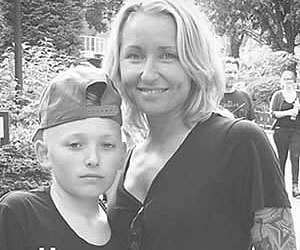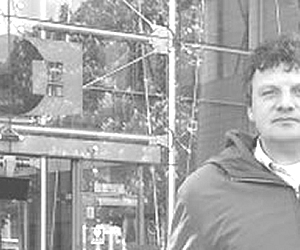
PGS, Vietnam Participatory Guarantee System
Postcode: 00000
Plaats: Ho Chi Minh-stad
Provincie: Hồ Chí Minh
Land: Vietnam
Routebeschrijving
Telefoon: 84-4 62700184
Beschrijving
Organic agricultural production is produced under the principles defined in international standards IFOAM (International Federation of Organic Agriculture Movements: www.ifoam.org) aims to ensure ecosystem crops, livestock, produce quality products with user safety and provide economic efficiency, maintain and improve soil fertility. It is the method to cultivate vegetables and fruits, produce food without using any toxic chemicals, such as pesticides, plant protection agents, chemical herbicides as well as chemical fertilizers, Organic production focuses on balancing the natural ecosystem.
The basic principles of organic agriculture:
• Organic agriculture is a form of agriculture largely avoid or eliminate the use of synthetic fertilizers, pesticides and substances regulating plant growth, and other additives in animal feed .
• The arable farmers in the form of organic agriculture based on the maximum rotation crop, the harvest surpluses, animal dung and mechanical cultivation to maintain soil productivity to provide quality plant nutrition, and control of grass, insects and other pests.
• Purpose of the leading organic agriculture is to optimize health and productivity of independent communities of soil life, plants, animals and humans.
According to the IFOAM: "The role of organic agriculture, whether in farming, processing, distribution or consumption, is aimed at maintaining the health of ecosystems and the living biological organisms from the smallest size in the soil to human beings".
In general, organic farming will improve and maintain the natural landscape and agricultural ecosystems, avoid overexploitation and contamination of natural resources, reduce energy use and unrecoverable resources, produce food with nutritious enough, non-toxic, and high quality ... also ensure, maintain and increase long-term fertility of land and consolidation cycles biological farm, especially the nutrient cycles, crop protection based on prevention rather than cure, diversified crops and livestock species, in accordance with local conditions, ...
Organic agricultural production is produced under the principles defined in international standards IFOAM (International Federation of Organic Agriculture Movements: www.ifoam.org) aims to ensure ecosystem crops, livestock, produce quality products with user safety and provide economic efficiency, maintain and improve soil fertility. It is the method to cultivate vegetables and fruits, produce food without using any toxic chemicals, such as pesticides, plant protection agents, chemical herbicides as well as chemical fertilizers, Organic production focuses on balancing the natural ecosystem.
The basic principles of organic agriculture:
• Organic agriculture is a form of agriculture largely avoid or eliminate the use of synthetic fertilizers, pesticides and substances regulating plant growth, and other additives in animal feed .
• The arable farmers in the form of organic agriculture based on the maximum rotation crop, the harvest surpluses, animal dung and mechanical cultivation to maintain soil productivity to provide quality plant nutrition, and control of grass, insects and other pests.
• Purpose of the leading organic agriculture is to optimize health and productivity of independent communities of soil life, plants, animals and humans.
According to the IFOAM: "The role of organic agriculture, whether in farming, processing, distribution or consumption, is aimed at maintaining the health of ecosystems and the living biological organisms from the smallest size in the soil to human beings".
In general, organic farming will improve and maintain the natural landscape and agricultural ecosystems, avoid overexploitation and contamination of natural resources, reduce energy use and unrecoverable resources, produce food with nutritious enough, non-toxic, and high quality ... also ensure, maintain and increase long-term fertility of land and consolidation cycles biological farm, especially the nutrient cycles, crop protection based on prevention rather than cure, diversified crops and livestock species, in accordance with local conditions, ...Organic agricultural production is produced under the principles defined in international standards IFOAM (International Federation of Organic Agriculture Movements: www.ifoam.org) aims to ensure ecosystem crops, livestock, produce quality products with user safety and provide economic efficiency, maintain and improve soil fertility. It is the method to cultivate vegetables and fruits, produce food without using any toxic chemicals, such as pesticides, plant protection agents, chemical herbicides as well as chemical fertilizers, Organic production focuses on balancing the natural ecosystem.
The basic principles of organic agriculture:
• Organic agriculture is a form of agriculture largely avoid or eliminate the use of synthetic fertilizers, pesticides and substances regulating plant growth, and other additives in animal feed .
• The arable farmers in the form of organic agriculture based on the maximum rotation crop, the harvest surpluses, animal dung and mechanical cultivation to maintain soil productivity to provide quality plant nutrition, and control of grass, insects and other pests.
• Purpose of the leading organic agriculture is to optimize health and productivity of independent communities of soil life, plants, animals and humans.
According to the IFOAM: "The role of organic agriculture, whether in farming, processing, distribution or consumption, is aimed at maintaining the health of ecosystems and the living biological organisms from the smallest size in the soil to human beings".
In general, organic farming will improve and maintain the natural landscape and agricultural ecosystems, avoid overexploitation and contamination of natural resources, reduce energy use and unrecoverable resources, produce food with nutritious enough, non-toxic, and high quality ... also ensure, maintain and increase long-term fertility of land and consolidation cycles biological farm, especially the nutrient cycles, crop protection based on prevention rather than cure, diversified crops and livestock species, in accordance with local conditions, ...
- Streekproducten:
- Nee
- Categorieën:
- Organisaties
Er zijn geen recenties op dit moment




